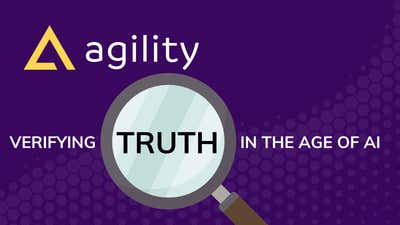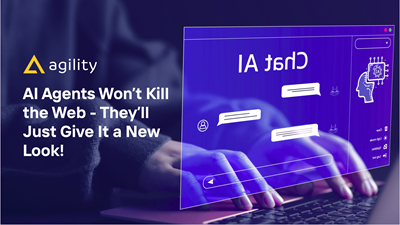Websites Aren’t Dead Yet – How AI Can Improve Your Funnel
I reserve the right to change my mind


I wrote previously that AI is killing websites.
That may have been a little premature.
I do believe that in the long term, the purpose of a website will change. SEO as we know it is evolving to include LLM optimization. While websites will continue to be the anchor of an organization’s brand identity, how a website is expected to attract and convert users to customers is undergoing a massive shift.
Traffic Goes Down, Ranking Stays High
There’s no question that, even for websites that are able to maintain a high SEO ranking, the amount of traffic being sent to that website is most likely dropping. That might lead us to believe that our sales conversion numbers will suffer as a result.
In some cases, that might be true, especially if your business relies on sheer volume.
In most instances, however, the users who do end up on your website after clicking on a link or engaging with ChatGPT, Gemini or Claude, are MUCH more educated. These are visitors who’ve been qualified by AI, so they are much more likely to actually convert than a regular user clicking on a search result or an ad.
The traffic sent to your website from AI might be less in terms of raw numbers, but that traffic is of much higher quality.
AI Gives More Than Just "Results"
The logic is that the AI may have already answered basic questions, compared options, and even given a word-of-mouth style recommendation to users.
If that user clicks through to your website, they are much more likely to take action. Users who end up on your website after visiting an AI summary or performing deep AI research will have a higher intent to go ahead and purchase your products or services.
The assumption here is that AI directed the user to your website correctly, and not as a hallucination.
For instance:
- If your website content is all about your commercial real estate properties for lease, and the user is expecting to see homes for sale, that’s a major problem. I haven’t experienced that myself, but AI hallucinations are something that, once it happens, can turn users away from AI; it certainly erodes trust.
For more reading on the impact of AI on search results, Semrush has some great content.
How do I Make Sure My Content Shows Up in AI?
If AI platforms are answering questions directly, how do you ensure your brand is still “in the room”?
One approach is to optimize content so that AI mentions or sources your brand in its answers. Some AI search integrations (like Bing’s chat or Google’s AI overviews) do cite sources or brands for factual info. A large portion of sources in AI-generated answers are actually official business sites and service pages.
This means maintaining authoritative, clear content on your site is still critical.
AIs often pull from official sites when users ask about a company or product. Whether LLMs will attempt to monetize a brand’s presence in their summaries is still an open question.
Another tactic is contributing to high-authority community content: forums like Quora and Reddit. They contain niche Q&A that AI finds valuable. If you want to show up on ChatGPT, you have to be present where AI is looking for answers to its questions.
How Do I Measure Website Success With AI?
Our metrics for success will need to change.
Instead of purely looking at website sessions and click-through rates, marketers need track things like “AI impressions” or brand mentions in AI outputs, conversion rates per AI referral, and overall engagement across channels.
It’s already getting harder to measure how users find you – content might influence a customer without a direct click path. New analytics tools are emerging to monitor AI-driven traffic and user interactions that don’t show up in traditional web analytics.
I believe this area will evolve fast.
The question about how LLMs will monetize their results will probably coincide with better tools from them for tracking referrals from AI. Will you be able to buy traffic from ChatGPT? That’s certainly a possibility, in my opinion.
What's yours?

About the Author
Joel is CTO at Agility. His first job, though, is as a father to 2 amazing humans.
Joining Agility in 2005, he has over 20 years of experience in software development and product management. He embraced cloud technology as a groundbreaking concept over a decade ago, and he continues to help customers adopt new technology with hybrid frameworks and the Jamstack. He holds a degree from The University of Guelph in English and Computer Science. He's led Agility CMS to many awards and accolades during his tenure such as being named the Best Cloud CMS by CMS Critic, as a leader on G2.com for Headless CMS, and a leader in Customer Experience on Gartner Peer Insights.
As CTO, Joel oversees the Product team, as well as working closely with the Growth and Customer Success teams. When he's not kicking butt with Agility, Joel coaches high-school football and directs musical theatre. Learn more about Joel HERE.



